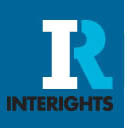European Council on Refugees & Exiles (ECRE), Brussels
Advocacy Internship
Deadline for application: 14 September 2012
The European Council on Refugees & Exiles (ECRE), a pan-European Alliance of refugee-assisting non-governmental organisations concerned with the needs of all individuals who seek refuge and protection within Europe, is offering an 11-month Advocacy internship at its Brussels Office. The main purpose of this position is to assist ECRE in fulfilling its organisational objectives by contributing to the achievement of activities within its Activities Plan, to assist ECRE in undertaking effective advocacy work by supporting the Senior Advocacy Officer in the gathering of information, the formulation of policy and the implementation of projects on specific topics relating to the external dimension of asylum and to monitor general policy developments on subjects relevant to ECRE.
Job title: Advocacy Intern
Reports to: Senior Advocacy Officer – External dimension.
Job purpose: To assist ECRE in fulfilling its organisational objectives by contributing to the achievement of activities within its Activities Plan. To assist ECRE in undertaking effective advocacy work by supporting the Senior Advocacy Officer in the gathering of information, the formulation of policy and the implementation of projects on specific topics relating to the external dimension of asylum. To monitor general policy developments on subjects relevant to ECRE.
Key responsibilities
Assist the Senior Advocacy Officer by contributing to:
• Background research using print and media sources;
• Preparation of policy briefings, guidelines, comments, papers and ECRE publications;
• Design and implementation of projects;
• Supporting documentation for meetings, e.g. background papers, and minutes of the meetings;
• Organising events relating to the external dimension of asylum, together with ECRE staff;
Monitor international, EU and national developments in relevant topics;
Attend internal and external meetings, as requested;
Contribute to the preparation of the ECRE Weekly newsletter, together with ECRE media and press staff.
Education
• University degree in law, political or social sciences, human rights, development studies;
• Proven knowledge of and interest in international and EU migration and asylum, human rights, humanitarian and development issues.
Languages
• Fluent written and spoken English;
• Working knowledge of other European languages is an advantage.
Skills
• Good interpersonal skills;
• Experience of having lived and/or worked outside the EU, particularly in developing countries is an advantage;
• Good knowledge of EU institutions is an advantage.
Conditions
• Paid internship for 11 months (bruto 708 €/month) (Belgian Contract–“Contrat belge d’immersion professionelle”);
• The Advocacy Intern will be entitled to 26 days annual leave if he or she has worked for the entire previous year in Belgium. If service during the previous year in Belgium is less than the full year, annual leave will be calculated pro rata. Regardless of the legal entitlement to annual leave in Belgium, ECRE will provide 6 days of extra-legal holidays a year.
Equal opportunity statement: ECRE aims to ensure that no prospective or actual employee is discriminated against on the basis of race, sex, nationality, marital status, sexual orientation, employment status, class, disability, age, religious belief or political persuasion, or is disadvantaged by any condition or requirement, which is not demonstrably justifiable.
 The Universidad Pablo de Olavide (Sevilla, Spain) and Protection International jointly organise the online course 'Postgraduate Diploma on Integral Protection for Human Rights Defenders and Social Activists'.
The Universidad Pablo de Olavide (Sevilla, Spain) and Protection International jointly organise the online course 'Postgraduate Diploma on Integral Protection for Human Rights Defenders and Social Activists'. This diploma is the first of its kind, since it is the only international Postgraduate Diploma addressing the need to protect those who work daily to defend human rights and, as a consequence of their work, suffer repression and aggression. The course addresses this protection in a comprehensive way, covering the existing national, international and regional laws and protection mechanisms, whilst studying security management, psychosocial support, the design of protection programmes, etc. The course will also include an introduction to the protection of witnesses and victims (with whom defenders usually work). Distance learning also offers the opportunity to participate from anywhere in the world, without having to leave your usual occupation.
This diploma is the first of its kind, since it is the only international Postgraduate Diploma addressing the need to protect those who work daily to defend human rights and, as a consequence of their work, suffer repression and aggression. The course addresses this protection in a comprehensive way, covering the existing national, international and regional laws and protection mechanisms, whilst studying security management, psychosocial support, the design of protection programmes, etc. The course will also include an introduction to the protection of witnesses and victims (with whom defenders usually work). Distance learning also offers the opportunity to participate from anywhere in the world, without having to leave your usual occupation.














